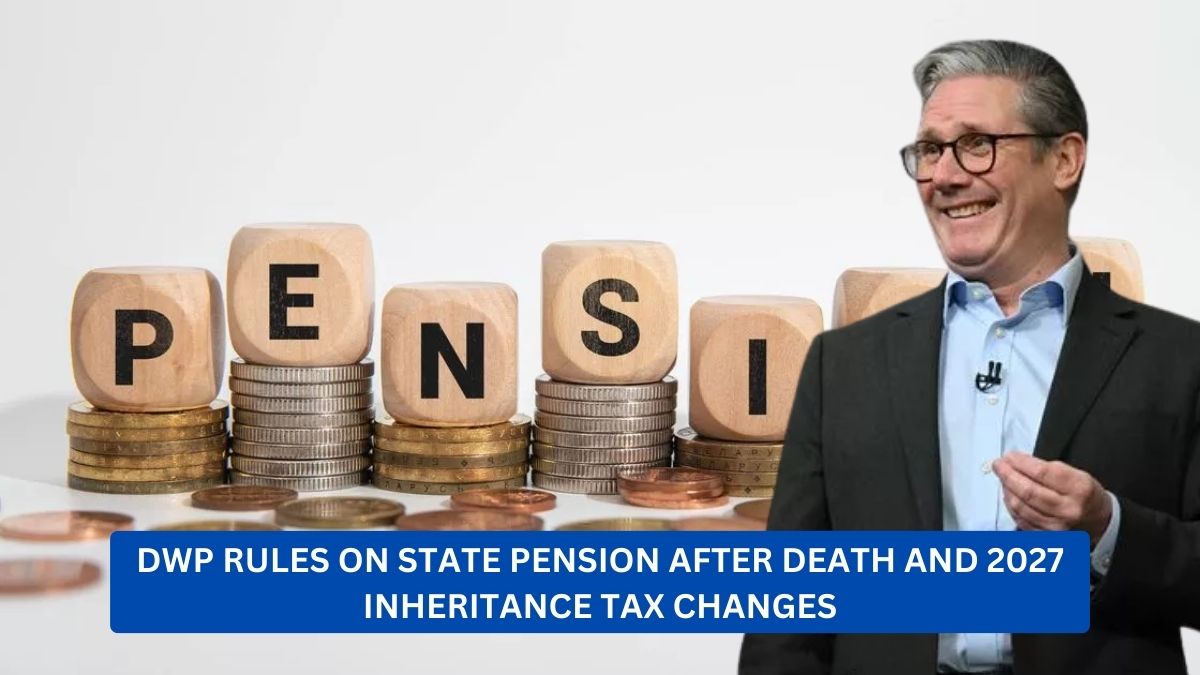When someone who receives the UK State Pension dies, the Department for Work and Pensions (DWP) follows specific rules regarding inheritance.
These rules, which vary depending on when the deceased reached pension age, determine whether a surviving spouse or civil partner can inherit all or part of their pension. But a significant tax change coming in April 2027 could make these rules even more important to understand.
Here’s a full breakdown of the current DWP pension rules upon death—and what’s changing that could impact tens of thousands of families.

How Pension Inheritance Works: Old vs New State Pension
Old State Pension (Before 6 April 2016)
For people who reached State Pension age before 6 April 2016, the rules are more flexible when it comes to inheritance:
- Basic State Pension: A surviving spouse or civil partner may be able to increase their own pension using the deceased’s National Insurance contributions.
- Additional State Pension (also known as SERPS): A portion of this may be inherited, depending on individual circumstances and the date of marriage or civil partnership.
- Deferred Pensions: If the pension was delayed or deferred and not claimed, the surviving partner may receive either increased regular payments or a lump sum.
New State Pension (From 6 April 2016)
For those who reached State Pension age on or after 6 April 2016, the rules are stricter:
- No Direct Inheritance: The new State Pension is based solely on your own National Insurance record.
- Protected Payments: If your partner had a “protected payment” on top of the standard pension amount, you may inherit up to 50%—but only if your marriage or civil partnership began before 6 April 2016.
Key Rule: Remarriage Cancels Pension Inheritance Rights
A lesser-known rule is that if a widow or widower remarries before reaching State Pension age, they lose their right to inherit any part of their late spouse’s State Pension. This applies under both the old and new pension systems.
Big Change Ahead: Pension Inheritance and Inheritance Tax in 2027
Currently, most unused pension funds—especially from defined contribution (DC) pensions—can be passed on tax-free when someone dies. This makes pensions an effective way to pass on wealth without triggering inheritance tax (IHT). But the UK Government plans to change that.
From April 2027:
- Unused pensions will be subject to Inheritance Tax: If someone dies with unspent pension savings, the value will be added to their estate.
- 40% IHT Could Apply: The standard inheritance tax rate of 40% will be applied to estates worth over the £325,000 tax-free threshold.
- Thousands Affected: According to a report in The Guardian, around 10,500 estates will be newly impacted by this rule. Another 38,500 could face higher tax bills than expected.
What Should You Do Now?
If you’re planning your retirement or estate, now is the time to review your arrangements in light of these changes.

Steps You Can Take:
- Check Your Pension Type: Is it a defined contribution pension or a defined benefit pension? The former is more likely to be affected.
- Talk to a Financial Adviser: Consider using pension savings during your lifetime or placing them into trusts to reduce IHT liabilities.
- Review Your Will and Estate Plan: Ensure everything is up to date and in line with the new 2027 rules.
- Track Your NI Contributions: Your pension amount and inheritance rights depend heavily on your National Insurance record. Check it on HMRC’s website.
Final Thoughts
DWP’s existing State Pension rules already limit how much can be inherited by a surviving partner. But starting in 2027, the new inheritance tax rule for pensions could significantly reduce what beneficiaries receive—even if pensions were intended to be a tax-efficient legacy.
For millions of people planning their retirement or supporting older relatives, staying ahead of these changes is crucial.
This article has been carefully fact-checked by our editorial team to ensure accuracy and eliminate any misleading information. We are committed to maintaining the highest standards of integrity in our content.

Deepak Grover is a dedicated content writer at OTE News, specializing in government affairs, public policy, and current events. With a keen eye for detail and a passion for factual reporting, he ensures readers receive accurate and insightful news. Deepak holds a degree in Political Science and has experience in research-driven journalism.
When not writing, he enjoys reading historical books, exploring hiking trails, and staying updated with global political trends. His commitment to ethical journalism makes him a trusted voice at OTE News.




